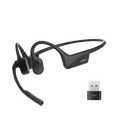Let’s face it––things have been tough. These days, anxiety is very common and many people are living with its effects as a response to stress. Most often, anxiety is described as a feeling of unreasonable fear or worry about what is to come. Thankfully, exercise is one of the easiest and most effective ways to cope with anxiety and can even help to reduce its symptoms. Read on to discover a few outdoor activities that stimulate the brain and can help keep you calm and collected whenever anxiety appears.
Ride an E-Bike to help relieve stress
Electric bikes (or e-bikes for short) are great examples of body stimulators because they help you become physically stronger. In addition, this activity comes with no side-effects that other medications have. Moving your muscles also makes you breathe deeper, and the circulated oxygen to the brain triggers a calming effect. Motorized bicycle kits have the same effect; you are still experiencing fresh air, which is a great stress reliever, and also can enjoy an effortless biking experience, which is especially relevant for people suffering from chronic illnesses, such as diabetes or hypertension.
E-bikes are also great because as you pedal, you get a workout along the way. You are actively moving your muscles, and this can help not only with anxiety but allows you to burn calories without taking a trip to the gym.
Running outdoors can help calm and revitalize the body
Running is practically the answer to everything. Our bodies are revitalized by running or jogging at a steady pace. As you jog, endorphins are released to stimulate and then calm down the mind naturally, no added substances needed!
If you’re not much of a runner, you don’t have to be in-stride to get a sense of accomplishment. Even spending some idle time outside can boost your mood and help relieve the body after a stressful day. Watching the sun go down or having a socially-distanced outdoor meal with friends is also considered a natural stimulant for calm. Looking for the perfect running partner? Take Shokz OpenRun open-ear endurance headphones along to stay motivated and connected while you clock your miles.
Practice mindfulness in a green space if possible
Mindfulness is one of the best things that you can practice to help with anxiety. Practice meditation. It can help you take your mind off things – even if only for a few minutes. Head outdoors or to your garden, and take note of your surroundings. What can you smell, feel, and hear? Does it feel good to have your mind off the hard times for even a moment? Mindfulness brings you back into the moment.
Mindfulness is also a great at-home practice because you can do it with or without people around you. You can also set your own time limits and do it for as long or as short as you want, making it your own personal zen time to relax, recharge, and reset.
Take a walk in nature to brighten up your mood
Spotting nature is a way to boost your wellbeing – it is not strenuous and is easily done from your back garden or a local park if you do not have one. Nature is unsurprisingly beautiful, the same as natural landscapes. Combining both would be a great opportunity to cool down. Spotting nature, in general, can really set a mind off hardships. You can go spotting for anything you like – it does not have to be just nature and wildlife. Walking around such beautiful sights is spiritually healing and will definitely help you feel calmer.
Overall, these tips are designed to help you with anxiety and to aid you with the help that you might need when you have an anxious moment. You should be as active as possible to help you distract your mind from the real world. The real world can be a scary place at times; however, the world will become less scary if you follow these tips.
Whatever activities you prefer, we hope these ideas help inspire you to try something new the next time you are feeling anxious.
This post was written by guest blogger Vincent Rubin. Vincent is a physical therapist with 5 years of experience, with a focus on sports injuries recovery and physical activities in general. In his free time, he likes to read and improve his knowledge more. Right now, he is enjoying sharing his passions and expertise through his writing.
Did you like these outdoor activities to help reduce anxiety? Read about 8 Ways to Practice Mindfulness on the Trails next!








